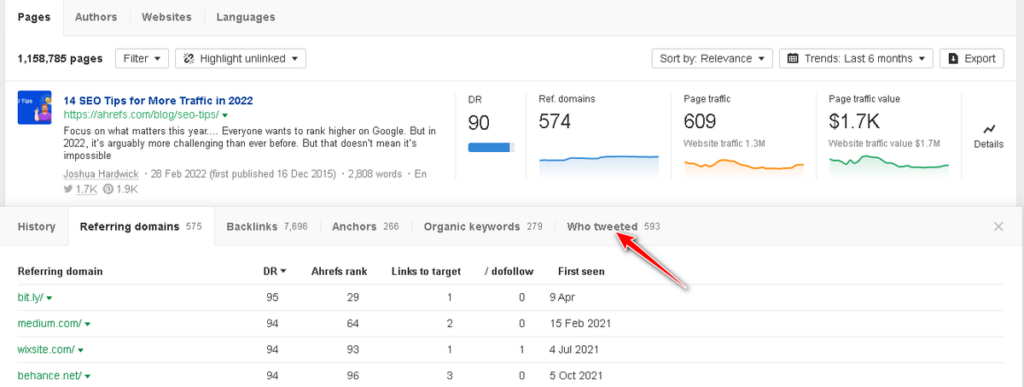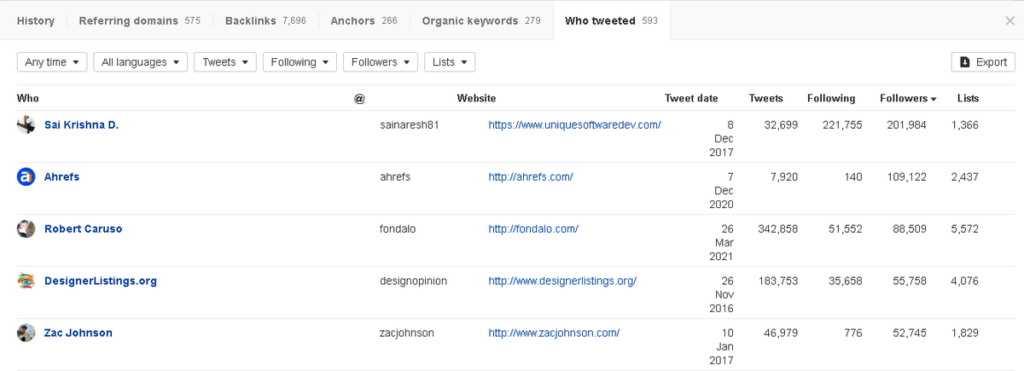Every startup struggles with raising the company’s brand awareness. And most of them face issues leveraging the content marketing strategies.
If you review the success story of well-known companies like Shopify, you will see that these former startups have implemented a powerful content marketing strategy.
Therefore, content marketing is a core element that helps startups grow on the web.
In this guide, you will find out everything you need to know about content marketing for startups.
Let’s start!
The importance of content marketing for startups
Content marketing is a first-to-go strategy that aims to increase brand awareness and attract more customers to your business. Besides, one of the goals is to educate your potential customers to detect their problem and solve it with the help of your service or product.
For example, Visme has a blog post that covers the process of creating infographics. If you review the post, you will see that it suggests not only 5 steps of the infographic creation but the exact tool that can help you make different infographics.
What does it give in terms of acquiring potential customers?
When people start surfing Google trying to find the information on infographic creation, they type the query like “how to make an infographic” and stumble upon Visme’s blog post.

This is just a one blog post that helps Visme build awareness around the company’s brand and toolkit. There is more content marketing work done in the form of videos, social posts, articles, guides, etc. Eventually, all these efforts helped drive 2.8M of traffic organically.

Don’t delude yourself by thinking that you will be able to skyrocket your blog in a blink of an eye. Nope. Content marketing takes time.
Plus, it is not enough to create content only. You will have to invest your time and money in third-party resources that help with content research, creation, and promotion.
What’s more important, not every management team is ok with content marketing due to a few simple reasons:
- Limited budget
- The necessity of getting fast results
Therefore, your management team might lean towards investing money into paid advertisement instead of content marketing.
Why?
Because paid advertising can provide quick results with less time investment.
Remember that you must provide your management team with your content marketing plan and those services you intend to use.
For example, any content creation requires proofreading and applying a grammar checker tool to make posts look grammatically correct. Other than that, you will need to polish it in terms of plagiarism. It leads to using plagiarism remover services that might cost money.
So, how to start with content marketing for startups?
Keep on reading and you’ll find out.
Types of Content You Should Be Focused On for Your Startup
Right before you jump to content creation, you should come up with two important things:
- Detecting your target audience
There is no point in creating content blindly. You need to know who your target audience is. The best way to figure it out is to create a buyer persona.
- Take care of an SEO aspect of content marketing
If your content doesn’t rank on Google, nobody will be able to read it. For this, you should pay attention to the technical SEO of your website. Use one of the available SEO tools in marketing and run a website audit. It will help prevent different technical issues that may harm Google to crawl, index, and rank your content.
Now, let’s discuss the types of content for your startup content marketing strategy.
- Viral content
This content aims to attract the attention of people. And there are three reasons for this:
- Provides quick attention in a short period of time (it will help you convince your management team that content marketing is worth investing in)
- Brand awareness (startups lack brand awareness; content drives people’s attention to your brand drastically)
- Build links (links are one of Google’s ranking factors – the more links your content acquires, the higher it ranks on Google)
- Drive more traffic (traffic equals website visits)
How to make your content viral?
a) Explore content ideas
You should figure out what topics catch people’s eyes and try to replicate the ideas.
How to do this?
- Visit niche-related communities and see what topics get a boost of upvotes.
- Review topics that have tons of shares
- Look what pieces of content have many backlinks
b) Create content
Start working on your content. Don’t forget to use a plagiarism checker to avoid getting your content rejected.
c) Content promotion
Content can’t go viral without your help. You should move in the next five directions:
Make sure you have already built a newsletter list with the members of your target audience. Afterwards, run a newsletter to provide them with your latest blog post updates.

- Share content across communities
There are a few great community-type platforms like Reddit and Quora where you can share your content. The only thing you must remember is to follow the rules and guidelines.
Outreach is a powerful tool for your content marketing. It allows you to do a few awesome things for your recently published posts:
- If you mention some experts or resources in your content, you should notify them about this. Your email pitch should be simple and straight to the point.
“Hi [First Name],
I have published a blog post on [topic] where I mentioned you as an expert/link to your resources or service.
You can check it out here [link to the post]
Hope you are happy with this 🙂
If you need anything to fix or add, let me know.
Thanks.“
- If your blog post covers the topic with a massive number of social shares and backlinks, you should explore these opportunities and present your piece of content to them.
To figure out the opportunities, go to Content Explorer tool from Ahrefs and click the “Referring domains” tab.

Pay attention to the social shares by clicking the “Who tweeted” tab.

When you collect the list of people to reach out to, go ahead and start your outreach.
If you want your content to breathe a new life, you should repurpose it. You can use different formats like video, infographics, social media posts, etc.
One of the most actionable ways to boost your content is by using paid advertisement.
- SEO content
This type of content is all about creating evergreen content. Content that will rank high on Google and drives tons of traffic.
How to create such content?
- Explore topics that have search potential
Content can get traffic when it covers the topic people explore on the web. To find these topics, you will need to run a process called keyword research.
How to do this?
Go to Ahrefs’ Keywords Explorer tool and type your target keyword. Afterwards, click the “Matching terms” report and review the keyword suggestions.

As a rule, startup websites don’t have so much authority on the web. Thus, it is going to be hard to rank for some keywords. Hence, it makes sense to choose low-hanging fruits – keywords with a low level of Keyword Difficulty.
To find these keywords, click the “KD” tab and filter the results maximum to “15.”

The next step is to choose keywords that look promising and see how they can help your business. Eventually, you will need to estimate these keywords in terms of their business potential.
Here is a comparative table you can refer to:
- “3” – your product is the only solution to the issue customers have
- “2” – your product helps but there is no strong need to use it
- “1” – your product can only be mentioned
- “0” – your product can’t be used and mentioned at all
Your goal is to target topics of “2” and above score.
By following this way of prioritizing topics, you will be able to create product-led content.
To create content that you want to rank on Google, you should prove that it is worth it.
How to do this?
First of all, take care of the content relevance. Relevance means aligning your content with search intent. Search intent stands behind the reason “why” people search the exact topic.
Search intent has three core elements to pay attention to:
- Type of content – review what type of content per your topic dominates on the SERP (blog post, video, product page, etc.)
- Format of content – review what format of content per your topic dominates on the SERP (listicles, reviews, guides, etc.)
- Angle of content – review what angle of content per your topic dominates on the SERP (for beginners, evergreen updated content)
Finally, you can start work on creating content. But don’t forget that your content must be of high quality. Thus, make sure it is genuine. To help it polish, feel free to use a paraphrasing tool. If you struggle with writing a summary of your content to get it featured across communities or blogs that have a word count limit, use summarizing tool.
It has been already stated that links play a crucial role in ranking pages on Google. However, startup websites don’t have many links. Likely, there are five web resources where you can build backlinks easily.
- Startup directories – these sites suggest the lists of various startups where you can place your startup site as well.
- Social profiles – create a company profile page across popular social media channels (Facebook, Twitter, LinkedIn, etc.) and add links to your site (pages).
- Product reviews – get in touch with sites that publish product reviews and ask them to write a review of your product.
- Product Hunt – is a popular community that helps people discover new products. Get your product featured there.
- HARO – site for connecting journalists and experts. By signing up to this site, you will receive emails from journalists asking you to provide them with your expert quote. You suggest your quote and get a backlink in return.
Follow these simple but effective link building tips and build backlinks for your startup.
To Sum Up
Don’t be afraid of competing with strong brands on the market. Every company starts small but moves ahead gaining more authority. Your startup is not an exception to the rule.
Content marketing must be your top strategy to apply. Yes, it takes lots of time and effort. But as it’s said – Rome wasn’t built in a day.
Follow the tips and tricks suggested in this guide. If you do everything correct, any startup website will grow extremely well in your hands.
If you think this post lacks more tips, feel free to share your thoughts in the comments.
Content marketing can help your company grow and become visible, especially for startups. But remember there are laws that govern this field too. Always remain on the safe side of the law when it comes to content marketing with regard to Intellectual Property, Privacy Laws, and others.